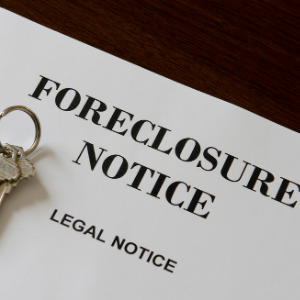
Understanding the Foreclosure Process: A Complete Guide for Massachusetts Homeowners
Understanding the foreclosure process is critical for Massachusetts homeowners trying to sell a foreclosed house successfully. In Massachusetts, foreclosures are typically handled through a legal procedure, with the lender filing a complaint to get court approval for the foreclosure.

Homeowners should familiarize themselves with essential details such as the notice of default, which is an official warning of impending foreclosure. They should also be aware of Massachusetts’ redemption period, which gives homeowners time to regain their property by repaying debts before the sale is finalized.
Working with professional real estate agents specializing in foreclosures can be helpful since they understand Massachusetts’s market dynamics and legal complexities. Additionally, obtaining an accurate appraisal and settling any liens or delinquent taxes are critical steps in preparing a foreclosure home for sale.
Another option homeowners should consider is contacting local home buying companies like CNC Offers. They buy homes for cash in Lowell, Boston, and nearby areas, helping homeowners skip the lengthy listing process and avoid foreclosure altogether. If you’re looking to sell your Massachusetts house fast, CNC Offers can provide a straightforward, no-obligation cash offer—making things much less stressful during a difficult time.
By carefully managing these variables, homeowners can increase their chances of effectively selling in this competitive market.
The Role of Lenders and Banks in Massachusetts’ Foreclosure Market
Lenders and banks play an essential role in the Massachusetts foreclosure market because they are frequently the principal players in the foreclosure process. When homeowners fail to make mortgage payments, these financial institutions file for foreclosure to reclaim the unpaid loan sum.
Lenders and banks must follow Massachusetts’ non-judicial foreclosure regulations, which compel them to give borrowers appropriate notice and an opportunity to correct defaults before proceeding with the sale. Understanding the lender’s point of view might be critical for homeowners looking to sell their property before auction.
Sellers may obtain short sales that benefit both parties by avoiding the high legal fees associated with auctions by negotiating directly with lenders or banks. Furthermore, lenders may be prepared to approve offers below market value if they expedite resolution, so homeowners and real estate brokers must keep open communication channels with these institutions throughout the selling process.
Financial Implications of Selling a House in Foreclosure
Understanding the financial consequences is critical for a successful transaction when selling a foreclosure house in Massachusetts before auction. Homeowners must examine their mortgage debt and any outstanding liens to establish the minimum sale price required to satisfy these commitments.
Working with a real estate agent who understands pre-foreclosure sales can help ensure the property is priced effectively in the competitive Massachusetts market, maximizing prospective offers. Sellers should also be aware of any tax duties, such as capital gains taxes, which may be offset if the property sells at a loss.
Furthermore, homeowners may incur fees for essential repairs or modifications to make the home more presentable to purchasers, as well as closing charges and commissions. Negotiating efficiently with lenders to pay any remaining mortgage debt with the sale proceeds is critical for avoiding legal ramifications and credit damage.
Understanding these financial components enables sellers to manage the complexity of a foreclosure sale more effectively, avoiding further economic distress.
Legal Obligations and Disclosures When Selling a Foreclosed Home
Understanding and complying with legal duties and disclosures is critical for a successful transaction when selling a repossessed home in Massachusetts. Sellers must follow state-specific regulations, which include presenting potential buyers with all essential disclosures about the property’s condition.
This includes providing a Lead Paint Disclosure if the property was built before 1978 and a Title V report for residences with septic systems. Disclosing any known defects or hazards is critical to avoid future legal challenges, such as structural damage or water intrusion.
Additionally, sellers should become acquainted with Massachusetts’ foreclosure rules to ensure that all procedures are followed appropriately until the moment of sale. Working closely with a real estate attorney may help you manage these legal complexities, ensuring that all documents are properly produced and presented by state rules.
Understanding these commitments protects the seller legally and fosters trust with possible purchasers, resulting in a more efficient sales process before the auction day.
Key Considerations for Selling a Foreclosure Property
Several important factors must be considered when selling a foreclosure house in Massachusetts before it goes to auction to ensure a successful transaction. First and foremost, it is critical to understand the local real estate market; recent sales of comparable properties aid in determining a competitive foreclosure price.
Working with an experienced real estate agent specializing in foreclosures can provide essential insights and effective marketing campaigns to attract potential buyers quickly. Addressing any necessary repairs or maintenance concerns that may deter potential purchasers is critical, since showing the property in good condition can boost its appeal.
Securing a clear title and settling any liens is critical to a successful sale process. Sellers should be familiar with Massachusetts’ special legal requirements and foreclosure procedures to minimize potential difficulties.
Preparing adequate documentation and being upfront about the property’s situation might help prospective buyers trust you, while offering flexible viewing schedules may allow you to accommodate serious offers faster.
Prepare Your Massachusetts Home for Sale During Foreclosure
When preparing your Massachusetts house for sale during foreclosure, making it more appealing to potential purchasers while ensuring compliance with state rules is critical. Begin by cleaning and organizing the property to create a pleasant atmosphere while emphasizing the home’s best qualities.
Make any essential repairs, especially those that affect safety or operation, such as plumbing leaks or electrical problems. It is recommended that you hire a professional inspector who is knowledgeable about Massachusetts requirements to uncover any hidden issues that may dissuade buyers.
Consider minor cosmetic upgrades, such as a fresh coat of paint or updated landscaping, to drastically increase curb appeal without requiring a significant investment. Collaborating with an experienced real estate agent familiar with the Massachusetts foreclosure market can provide insights into competitive pricing strategies and efficient marketing techniques for distressed properties.
By selecting an appealing price point and utilizing targeted advertising, such as online listings and open houses, you can rapidly attract prospective buyers before the auction process further restricts your alternatives.
Critical Repairs and Renovations Before Selling a Foreclosure
Before selling a foreclosure house in Massachusetts, make necessary repairs and modifications to attract potential buyers and increase the property’s market value. Begin by correcting structural issues like roof leaks, foundation fractures, and plumbing difficulties, which can dissuade prospective buyers if left untreated.
Updating obsolete electrical systems and ensuring that HVAC units are operational can increase buyer interest. Freshening the inside with a neutral paint scheme and new fixtures helps purchasers picture their style.
Furthermore, improving curb appeal by tidying up the landscape, restoring broken walkways, and keeping outside surfaces clean can provide a good first impression. Investing in these critical areas boosts the likelihood of a faster sale and positions your foreclosure property competitively in the Massachusetts real estate market before auction.
Strategies for Pricing Your Foreclosed House Competitively
Setting a competitive price before auction when selling a foreclosure house in Massachusetts is critical for attracting potential buyers and facilitating a rapid transaction. Begin by conducting thorough market research to better understand the current real estate trends in your area, focusing on recently sold properties similar to your foreclosed house.
How location, size, condition, and amenities influence pricing. Position your house slightly below comparable residences to pique curiosity and attract customers searching for a bargain.
Consider working with a real estate agent with experience in foreclosure sales, who may provide significant insights to assist you in establishing the best listing price. Furthermore, accounting for necessary repairs or renovations is critical; the price should reflect the property’s condition while keeping competitive with competing listings.
Remember that pricing too high may discourage offers, and underpricing may result in financial loss.
Marketing Tactics for Selling a Distressed Property
In Massachusetts, selling a foreclosure property before auction necessitates effective marketing strategies. First, staging the home, even when damaged, can highlight its most appealing features.
A professional photographer may capture the home’s best angles, enhancing its online listing on Zillow and Realtor.com. Write engaging descriptions that market the property’s unique attributes and necessary neighboring facilities to capture the attention of value-seeking buyers and investors.
Conducting open houses may capture even more interest; schedule them during busy times to maximize attendance. Building partnerships with realtors dealing primarily in distressed properties can also increase your visibility.
Social marketing campaigns aimed at specialized groups interested in investment, renovation, or fixer-upper properties can be very effective. Virtual tours can help draw buyers who are not in the area.
Local contractors may be able to provide renovation cost estimates to interested buyers, thus making the purchase more appealing. These methods increase your chances of selling a foreclosure quickly and effectively before auction.
Cooperating with Real Estate Agents to Sell Foreclosures in Massachusetts
Collaborating with a well-versed real estate agent is essential to sell a foreclosed home in Massachusetts before it goes to auction. Such agents understand the local market well and can counsel on pricing strategies to ensure the foreclosure property is priced attractively to garner immediate interest.
In addition, through their marketing skills and networks, agents can enhance a property’s exposure through listings and open houses. Real estate agents also manage sales swiftly and negotiate offers due to their solid negotiation skills, which allow them to handle special challenges posed by foreclosure sales.
Their mastery of local policies and of what documents need to be filled out ensures that all legal matters about the sale of a foreclosure are dealt with precisely and promptly, minimizing delays. Every foreclosure is unique and requires tailored strategies, which is where an agent’s wealth of knowledge and contacts come in handy—it proves essential in executing a successful sale before auction.
The Buyer Side Analysis of Buying a Foreclosed Home
Analyzing buyer perceptions is vital to finding ways of selling a foreclosure home in Massachusetts before auction. Buyers intending to purchase these houses tend to be value-conscious and look for investment potential.
They search for properties that offer high returns through resale or rental income. These purchasers understand the risks of buying foreclosures, including repair costs and title problems, and often expect lower prices to mitigate these issues.
Moreover, purchasing sought-after foreclosures in high-demand neighborhoods with reputable schools adds to their appeal and potential resale value. Helping build credibility and fostering seamless transactions by offering potential purchasers comprehensive data on the property’s condition, neighborhood specifics, and liens or encumbrances aids in establishing trust.
Addressing these buyer motives proactively enables effective adjustments to marketing tactics and targeting desired outcomes, such as a timely sale before auction.
Timing Considerations: When to List Your Home in the Massachusetts Market
As with any auction-based sale, strategically determining the timing of listing foreclosure homes for sale in Massachusetts is crucial. Assessing regional trends in the real estate market can elevate your sales approach.
Spring and early summer are the busiest periods for real estate sales in Massachusetts, making them prime for foreclosure listings. These months and increased demand can drive competition, resulting in exponential value acceleration and expedited sales.
Additional factors, including interest rates and the state of the economy, should also be considered as they may impact purchaser activity. Moreover, knowing the specific timetable associated with foreclosure processes in Massachusetts helps strategically position the listing before critical milestones.
By analyzing these timing elements, sellers enhance their ability to draw responsive and willing buyers and secure a reasonable sale price for their foreclosed home.
Considering Mortgage Debt Relief During a Sale
Explore mortgage debt relief options to sell a foreclosure house in Massachusetts before it goes to auction. Owners can attempt to negotiate a short sale with their mortgage holder to permit the home to be sold for a price lower than the outstanding mortgage.
This method can be beneficial as it prevents foreclosure while simultaneously lowering debt. Another form of modification is where homeowners negotiate with lenders to change their mortgage terms, which may reduce monthly payments and facilitate the home’s sale.
Real estate foreclosure specialists are best placed to advise on these procedures in compliance with Massachusetts regulations. Seeking state-regional assistance with distressed foreclosure properties is beneficial financially and eases foreclosure-related burdens.
Selling a home in foreclosure before auction requires maintaining healthy relationships with lenders and exploring all other avenues of mortgage debt relief.
Auctions as an Alternative Home Sale Method
Alternative to selling a home, auctions can be held to sell Massachusetts Foreclosure Houses before the auction date is set. They attract potential clients with impactful advertising, and competitive bidding can significantly increase prices.
Hence, professional auction services streamline negotiations and accelerate sales discussions. They also grant sellers access to extensive marketing networks that promote potential buyers from within and outside Massachusetts, enhancing interest in the property.
Purchasers engage immediately, making auctions more efficient than other real estate approaches. Massachusetts foreclosure auctioneers ensure adherence to compliance, which boosts the property’s value before the foreclosure auction date.
What Local Real Estate Trends Mean for Your Boston Foreclosure Sale
Understanding local real estate trends is pivotal to Boston foreclosure sale strategy and outcome management. Changes in the economy, season, and even the supply of housing influence property prices and buyer interest in Greater Boston and Massachusetts.
To competitively auction your foreclosure, serious buyers must be present well before the auction date. Neighborhoods and their previous selling prices can inform their advertising and sales strategies. Development-focused investors might find emerging neighborhoods attractive, thereby affecting your strategy.
Local brokers have information about their areas regarding recent sales, averages, and even expectations, allowing them to tailor ads to buyer demands and increase the chances of a pre-auction sale. Insights on these trends can help Boston sellers capitalize on the densely populated yet highly competitive real estate environment.
Can I Sell My House While I’m in Foreclosure?
Yes, you can sell your home while it is under foreclosure in Massachusetts. Navigating the foreclosure process can be difficult, but with the proper methods, you can effectively sell your property and even avoid the negative impact of foreclosure on your credit.
First, it’s critical to grasp the timetables and legal criteria for Massachusetts foreclosure regulations. Engaging a qualified real estate agent who specializes in foreclosures can be quite beneficial throughout the process.
They can assist you in competitively pricing your house, marketing it efficiently to attract possible buyers, and negotiating offers that cover existing obligations. Consider contacting your lender to explore short sale possibilities or mortgage assistance programs that may help the transaction go more smoothly.
When selling a foreclosure house in Massachusetts, acting swiftly and decisively is critical to increasing your chances of concluding a successful transaction before the auction date.
How Long Does It Take to Foreclose on a House in Massachusetts?

The foreclosure timeline in Massachusetts is critical to remember when attempting to sell a foreclosure property quickly because of the complicated judicial process. On average, the entire foreclosure process takes over 150 days.
The timeline starts when the homeowner misses payment deadlines and the mortgage lender issues a notice of default. Afterward, there is a cure period in which homeowners are allowed to rectify the default. This grace period is usually around 90 days during which they can clear the dues to avoid foreclosure.
The lender will commence judicial foreclosure proceedings in Massachusetts if no resolution is achieved. This involves substantial court litigation, which requires the lender to file a complaint and attend several hearings. Depending on the court’s schedule and any disputes the homeowner raises, this can add considerable duration to the entire process.
These timelines mentioned earlier are highly important for sellers who wish to sell a foreclosure house in Massachusetts efficiently and within regulatory constraints.
Can You Sell a House with a Lien on It in Massachusetts?
A property with a lien can be sold in Massachusetts, but taking the necessary steps to ensure an issue-free sale is critical. Selling a foreclosure property with a lien in Massachusetts comes with specific legal responsibilities that require all debts to be settled before the sale.
As in all cases, listing a property for sale has many costs, including taxes and mortgage liens that should be settled before the sale. It is important to remember that a licensed real estate agent experienced in the foreclosure laws of Massachusetts can be beneficial.
A licensed real estate agent experienced in foreclosures can assist in negotiating with the lien holders and possibly agreeing to a lien release at the sale’s closing. In addition, a seller must obtain a title free of encumbrances, which often means settling any liens on the title before the sale proceeds are distributed.
Providing prospective buyers with information about the property, including any potential encumbrances, and being candid about the property’s condition usually simplifies the sales process. These approaches assist sellers in maneuvering through the intricacies of selling a foreclosed property with a lien in Massachusetts.
How to Sell a House in Pre-foreclosure?

Selling a home in the pre-foreclosure phase in Massachusetts requires strategizing based on the real estate climate. Homeowners in pre-foreclosure must conduct a market analysis to set an attractive yet competitive price.
Working with a skilled real estate agent specializing in foreclosures and short sales is essential. Such an expert can help inform clients about effective pre-foreclosure marketing strategies.
Working on curb appeal and staging the home may help capture the attention of buyers more readily. Homeowners are encouraged to directly communicate with their lenders regarding options that may help facilitate the sale, including loan modification or short sale agreements.
Conducting open houses and advertising on the internet reaches eager buyers seeking foreclosure windows in Massachusetts. With these simple strategies, sellers can manage the selling difficulties of a pre-foreclosure home while mitigating financial losses and circumventing the complete foreclosure process.
Whether you’re facing foreclosure, dealing with liens, or simply need to sell your Massachusetts house fast, CNC Offers provides a hassle-free, cash-based solution tailored to your unique situation—helping you confidently move forward. Contact us at (781) 205-9928 to get your offer today!
Helpful Massachusetts Blog Articles
- Selling Your Home Amid Divorce In Massachusetts
- Expert Guide To Selling An Inherited House In Massachusetts
- Effective Strategies For Selling A Foreclosure Home In Massachusetts
- How To Sell A House Needing Repairs In Massachusetts
- How To Successfully Sell Your Massachusetts Home Without A Real Estate Agent
- Massachusetts Home Seller Closing Costs Without A Realtor

| PRE FORECLOSURE | FORECLOSED UPON | FORECLOSURE SALE | FORECLOSURE AUCTION | BANK | STATE OF MASSACHUSETTS |
| AUCTIONEER | BORROWER | CASH | ATTORNEYS | LAWYER | MONEY |
| SHORT SELL | SCRA | SERVICEMEMBERS’ CIVIL RELIEF ACT | SERVICEMEMBERS | DEEDS | MORTGAGE MODIFICATION |
| INFORMATION | FEES | NEWSPAPER | JUDGMENT | ENTER A JUDGMENT | BANKRUPTCY |
| BANKRUPTCY ATTORNEY | REGISTRY OF DEEDS | EQUITY | AFFIDAVITS | SUING | LITIGATION |
| INTEREST | DEFICIENCY JUDGMENTS | MARKET VALUE | COMPANY | MORTGAGEE | |
| BIDDER | HUD | HUD’S | TERMS OF USE | PRIVACY | INCOME |
| HOMELIGHT | FREQUENCY | EVICTION | HOME EVICTION | DATA | CREDIT HISTORY |
| CREDIT REPORT | CREDIT RECORD | CONSENT | LEGAL ACTION | ACCELERATION | MORTGAGE SERVICER |
| INVESTOR | DUTY | CONTRACT | ASSET | SHERIFF | REAL ESTATE OWNED |
| REO | PROMISSORY NOTE | POLICY | OWNERSHIP | NOTHING | LIABILITY |
| GRACE PERIOD | DEED IN LIEU OF FORECLOSURE | COMPLEXITY | CLOCK | CALIFORNIA |
